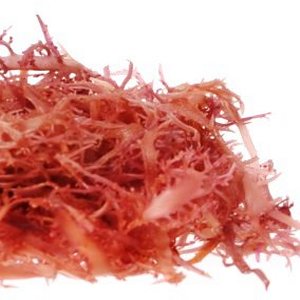Seaweeds can help to balance all the essential functions required in the human body to survive and thrive. They are the most ancient plants on earth, and are rich in unique bioactive compounds which stimulate the body’s natural defenses and gently support holistic healing.
It’s well known that seaweeds are the richest source of natural organic iodine and consequently help boost metabolism, regulate weight, and stimulate cellular activity. This, in turn, burns fats and eliminates toxins. However, what is lesser known is that seaweeds can have a multi-faceted and positive role to play in helping to reduce the impact of chronic diseases such as cancer, heart disease, stroke, diabetes, arthritis, and some autoimmune disorders* such as Coeliac** disease, Rheumatoid arthritis, and Psoriasis. Research is underway in all of the following areas to better understand how eating helps to balance our body’s efficient functioning and support healing through our body’s critical systems, including (but not limited to) endocrine, cardiovascular, lymphatic, respiratory, digestive, and urinary systems.
How Seaweed Supports Holistic Health
Seaweeds Support the Endocrine System
Seaweeds have a high concentration of bioavailable iodine. Because of this, they are considered thyroid modulators and gland balancers, as the thyroid regulates metabolism. Iodine is also critical to metabolic functions in many areas of the body and can impact: glandular health, immune function, brain health, and ovarian health. Without enough iodine, the thyroid eventually produces inadequate amounts of hormones, which affect the entire metabolism and energy levels in the body. To convert & utilise the iodine properly, the body needs many other minerals, which are also abundant in seaweed.
Eating seaweeds can support a well-populated microbiota
The prebiotic fibre in seaweed has been shown to successfully go through the digestive tract and selectively nourish the good gut flora.
Seaweed has a role to play in balancing PH Levels
Alkaline/acidic balance is critical to remain healthy. An acidic body is more vulnerable to disease, infections, and damage. An acidic condition strains the body and compels it to borrow minerals from the bones & organs in an attempt to neutralise the acid & remove it safely. Food intake should be balanced: 75% alkaline and 25% acidic. Seaweed is one of the most alkaline foods and, therefore, an excellent addition to a balanced and acidic Western diet.
Seaweed can help to regulate blood sugar
Brown seaweeds rich in Fucoidan have been found to stabilise blood sugar levels, prevent insulin over-response and promote healing. It is said that fucoidan slows glucose infusion into the bloodstream from the intestines. Seaweed also supplies the mineral chromium, essential for glucose utilisation.
Seaweed supports the absorption and reduction of cholesterol
Seaweed can help sustain lower levels of triglycerides and cholesterol in the body. This, in turn, helps to maintain a healthy heart and smooth circulation in the blood vessels. It is said that seaweed promotes lipid metabolism in the liver (resulting in lower cholesterol levels), strengthens weak and diseased blood cells and helps dissolve plaque buildup in arteries – culprits in heart disease.
Seaweed can support balancing blood pressure
Kelp/kombu has long been used as a blood pressure lowering agent in Japanese botanical medicine. Research confirms that kombu infusions are effective at balancing blood pressure – the balance of potassium & chloride (both found in seaweeds) can lead to improved blood pressure readings without any adverse side effects.
Stress has been recognised as a contributing factor to imbalances in body functions. Seaweed is an excellent source of magnesium and potassium, which protects blood vessels and fights the effects of stress.
*A word of caution
For some auto-immune disorders, which are caused by the immune system attacking a body system or part after wrongly perceiving it as a threat (e.g. Graves disease), seaweed (mainly brown seaweeds with a relatively higher iodine content) may not be recommended as seaweed’s natural immune-strengthening properties can cause a worsening of autoimmune symptoms as the immune system gets stronger and continues its attack on the body’s cells. Always consult a health professional for personalised medical advice tailored to your health situation.
Read more on iodine, blood pressure, and how to add a little seaweed to everyday life easily.







